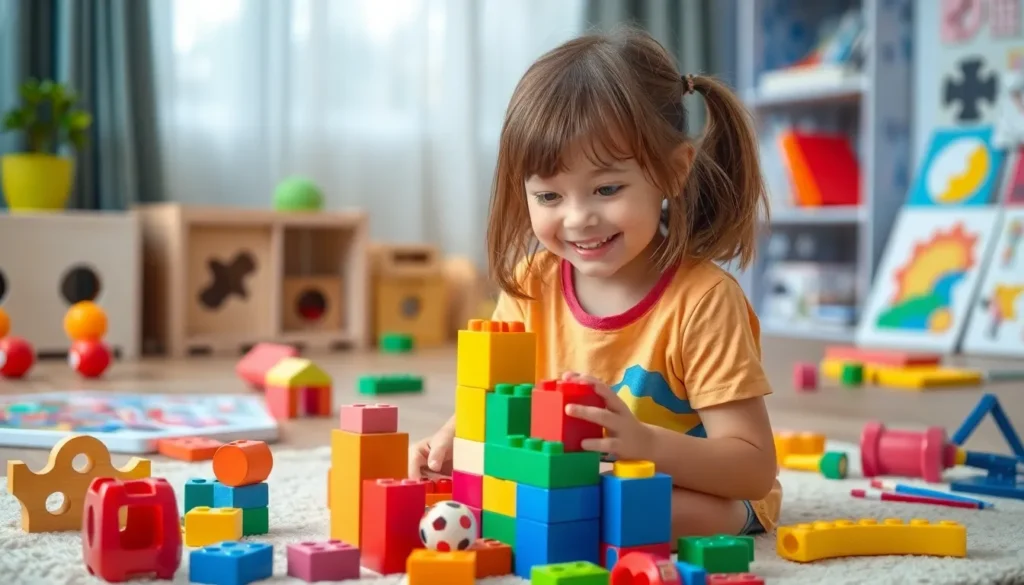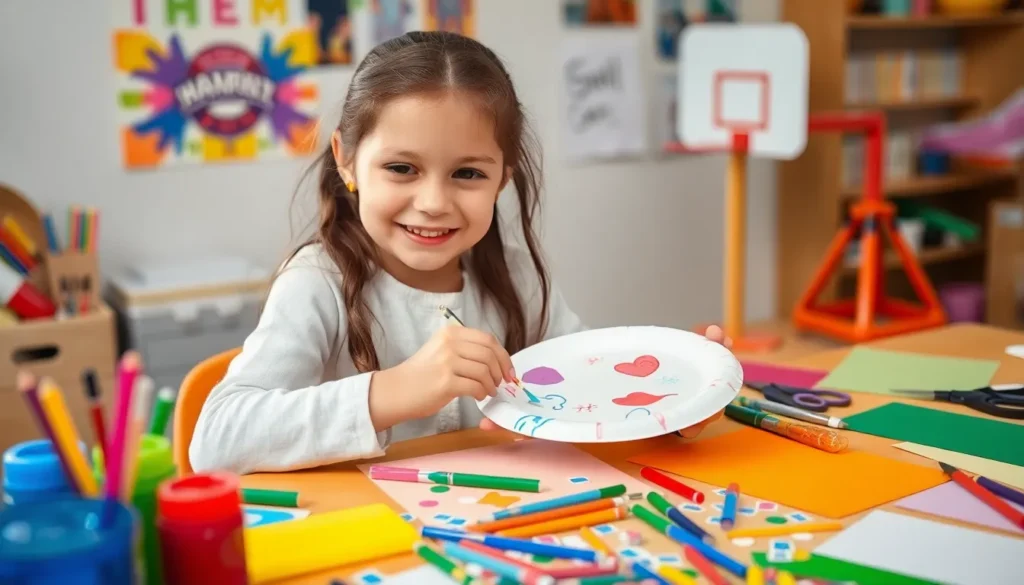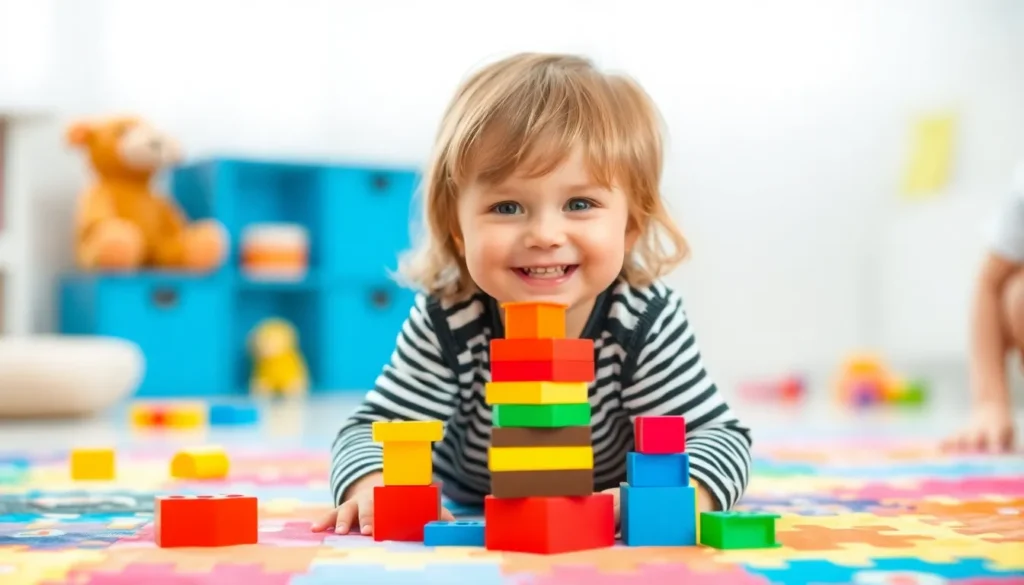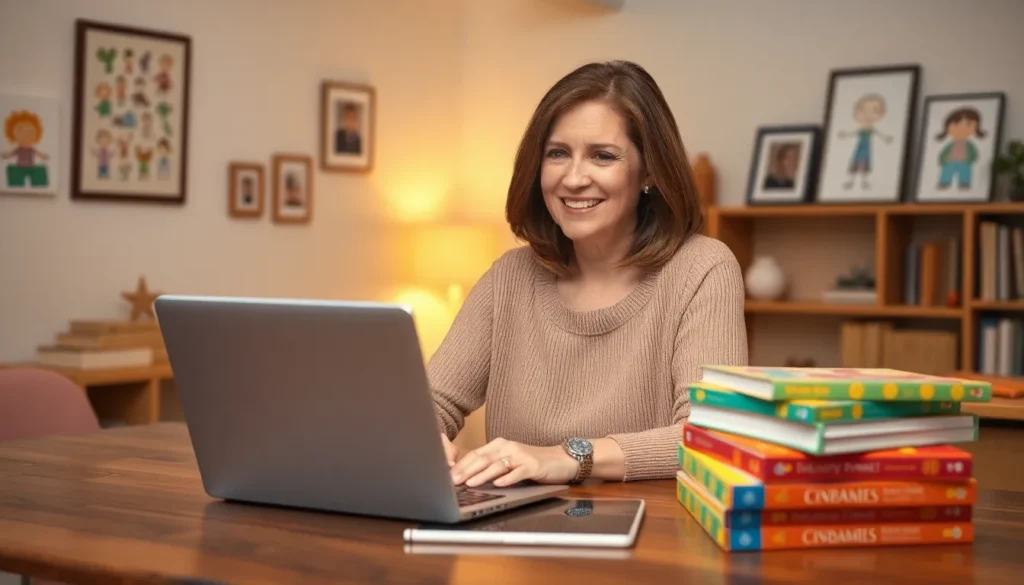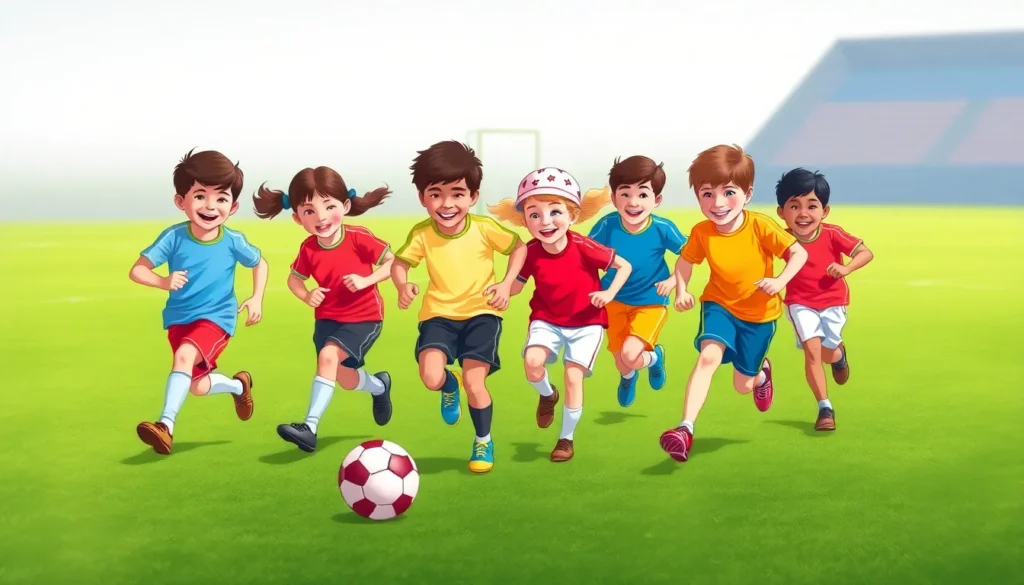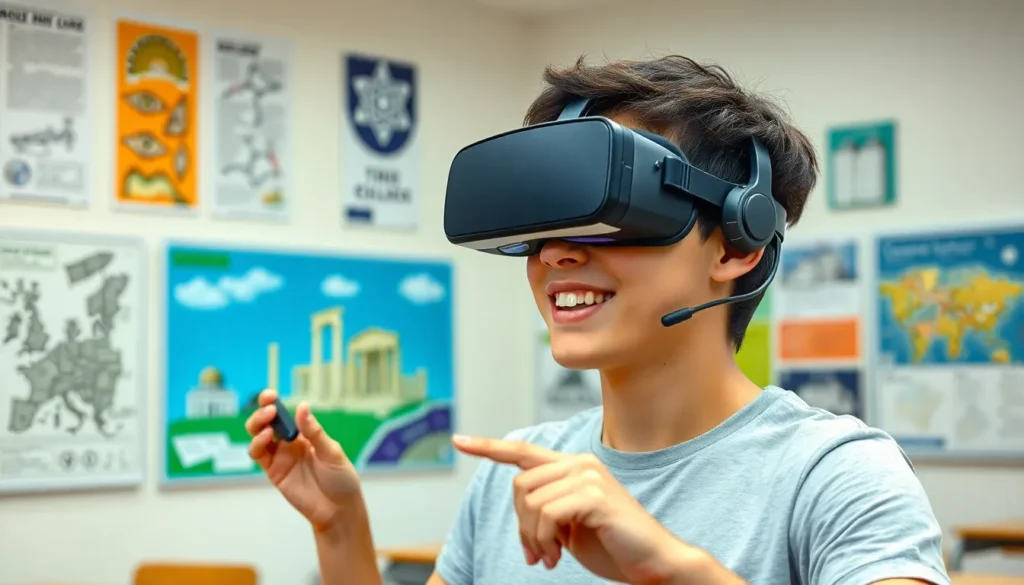Finding the right sport for kids with ADHD can feel like searching for a needle in a haystack. With boundless energy and a unique way of seeing the world, these kids often need activities that match their enthusiasm while providing structure. Luckily, there are sports out there that can turn that energy into focus and fun, making practices feel less like a chore and more like an adventure.
Table of Contents
ToggleUnderstanding ADHD in Children
Attention-deficit/hyperactivity disorder (ADHD) impacts behavior and learning in children. This neurodevelopmental disorder shows symptoms like impulsiveness, inattention, and hyperactivity. Researchers estimate that ADHD affects approximately 5% of children globally, making it essential for caregivers and educators to understand its implications.
Behaviors associated with ADHD can make traditional sports challenging. Children may struggle to follow instructions or remain focused during practices and games. Yet, engaging in sports can offer numerous benefits. Physical activity encourages the release of neurotransmitters, which can improve focus and mood.
Setting specific goals enhances motivation for children with ADHD. Goals can include completing a training session, improving skills, or achieving a personal best. Celebrating small achievements reinforces their sense of accomplishment and increases self-esteem.
A structured environment supports children with ADHD. Coaches can establish clear expectations and routines. For example, using visual aids or breaking tasks into smaller steps can help maintain engagement.
Moreover, social interactions gain importance in deciding suitable sports. Children benefit from teamwork and forming friendships, which contribute positively to their emotional and social development. Activities that promote cooperation, such as soccer or basketball, often align well with their needs.
In addition, some sports cater specifically to high-energy levels. Activities like martial arts, swimming, or dance provide ample movement with structure. Selecting sports that align with a child’s preferences encourages continuous participation, fostering a lifetime love of physical activity. Understanding ADHD allows parents and coaches to create supportive environments that transform challenges into opportunities for growth.
Why Sports Are Beneficial for Kids with ADHD
Sports provide numerous advantages for kids with ADHD, fostering both physical and mental well-being. Engaging in physical activities channels energy into structured environments, promoting an overall healthier lifestyle.
Physical Health Benefits
Physical health improves through regular participation in sports. Active engagement leads to enhanced cardiovascular fitness and muscle strength. Kids develop coordination and balance while refining motor skills, contributing to overall physical development. Maintaining an active routine also aids in weight management. Regular exercise helps children sleep better, which is vital for attention and behavior regulation.
Mental Health Benefits
Mental health benefits significantly arise from involvement in sports. Regular physical activity releases endorphins, reducing anxiety and stress levels. Participation enhances focus, which helps mitigate symptoms of inattention characteristic of ADHD. Setting and achieving performance goals boosts self-esteem. In structured team settings, children learn to manage frustration and build resilience, aiding emotional regulation.
Social Skills Development
Social skills development occurs naturally through sports participation. Team sports encourage collaboration and communication among peers. Children learn to share victories and losses, fostering empathy and sportsmanship. This interaction lays a foundation for lifelong friendships. Engaging in sports also teaches kids how to follow rules and abide by authority, which further enhances their social competence.
Best Sports for Kids with ADHD
Selecting the right sports can make a significant difference for kids with ADHD. Individual sports offer great benefits since they allow for personal pacing and focus.
Individual Sports
Competition in individual sports can help children hone their skills without the pressures of team dynamics. Swimming, for instance, provides a calming routine while promoting cardiovascular fitness. Tennis encourages quick thinking and adaptability, keeping kids engaged and active. Martial arts develop discipline and focus, allowing for both physical and mental growth. Running offers straightforward goals, enhancing motivation through personal achievement. Cycling serves as both a fun activity and a means to improve balance and coordination. Each sport allows children to work at their own pace, fostering confidence and personal development.
Team Sports
Team sports offer a structured environment that benefits children with ADHD through social interaction and skill development.
Soccer
Soccer provides high-energy activity that channels enthusiasm. The fast-paced nature of the game requires constant movement, engaging kids both physically and mentally. Players learn to cooperate with teammates while developing essential skills like coordination and communication. Coaches emphasize teamwork and strategy, creating opportunities for kids to focus and follow rules. Frequent scoring and dynamic play keep them excited, reducing boredom. Additionally, practices allow repetition, which reinforces skills and boosts confidence. As children participate, they’ll enjoy a sense of belonging, promoting self-esteem and social connections.
Basketball
Basketball promotes agility and teamwork among players. The game involves quick decision-making and strategic thinking, helping children with ADHD develop focus and perseverance. Dribbling and shooting techniques provide excellent opportunities for physical exercise, improving coordination and overall fitness. Each game contains numerous scoring chances, creating excitement and maintaining engagement throughout play. Practices often focus on individual skills while encouraging collaboration, essential for nurturing social skills. This sport teaches kids the importance of working together towards a common goal. Players gain a sense of accomplishment, enhancing their self-worth and motivation.
Tips for Encouraging Participation
Encouraging participation in sports for children with ADHD involves understanding their specific needs and preferences. Selecting the right sport plays a crucial role in keeping them engaged.
Finding the Right Sport
Exploring various activities helps identify what resonates with the child’s interests. Individual sports like swimming and martial arts allow children to focus at their own pace while developing discipline. Team sports such as soccer and basketball provide a structured environment that fosters social interaction. Assessing the child’s energy levels and preferences can guide the decision, ensuring the selected sport aligns with their temperament and abilities. Observing their reactions during trial sessions can reveal their true interests, making it easier to find a suitable match.
Creating a Supportive Environment
A supportive environment enhances the child’s experience and boosts their motivation. Establishing clear expectations helps provide structure, making it easier for them to understand what is required. Encouragement and positive reinforcement should be part of every practice or game, reinforcing confidence and building self-esteem. Including family members in activities creates a sense of belonging and commitment. Prioritizing communication with coaches ensures that both parties align on approaches that suit the child’s unique needs, enhancing their overall participation in sports.
Finding the right sports for kids with ADHD can transform their experiences and foster personal growth. By selecting activities that match their energy levels and interests, parents and coaches can create an engaging environment that promotes both physical and mental well-being. Individual sports like swimming and martial arts encourage personal development while team sports like soccer and basketball enhance social skills and cooperation.
Ultimately, the right sport can empower children with ADHD to channel their enthusiasm positively, build resilience, and cultivate lifelong friendships. Emphasizing structure and support helps children thrive, making sports an invaluable part of their development journey.


